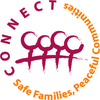Present-Day Black Movements and Leaders

Many people are familiar with the renowned Black leaders and activists of the past, like Dr. Martin Luther King, Jr. and Rosa Parks, but what about those who are alive and doing the work currently? This Black History Month, we are taking a look at various present-day Black activists and movements championing equality and equity.
1. Ruby Bridges
In November 1960, six-year-old Ruby Bridges was the first African American student to integrate an elementary school in the South. She subsequently graduated from a desegregated high school, became a travel agent, married and had a family. A lifelong activist for racial equality, Bridges established The Ruby Bridges Foundation in 1999. Its mission is to promote tolerance and create change through education
Source: National Women’s History Museum
2. Black Lives Matter & the 2020 Summer Protests
In 2013, organizers Alicia Garza, Patrisse Cullors, and Opal Tometi created #BlackLivesMatter, a Black-centered movement project, following the acquittal of Trayvon Martin’s murderer, George Zimmerman. The project is now a member-led global network of more than 40 chapters. It has garnered international attention, especially following the worldwide Summer 2020 protests in response to George Floyd’s murder by Minneapolis police officers.
It is believed that between 15 million to 26 million people in the United States have participated in demonstrations, which would make it the largest movement in the United States history.
Sources: Black Lives Matter Herstory & New York Times
3. Stacey Abrams
Stacey Abrams was the Democratic nominee in the 2018 Georgia gubernatorial election, becoming the first African-American female major-party gubernatorial nominee in the United States. Ms. Abrams is largely credited in the public sphere for flipping Georgia’s Senate seats from Republican to Democrat, having spent a decade building a Democratic political infrastructure in the state with her New Georgia Project and with Fair Fight, the voting rights organization she founded after losing the election for governor in 2018. In 2021, Abrams was nominated for a Nobel Peace Prize for her efforts in the 2020 election.
Source: New York Times
4. 1619 Project
The 1619 Project is an ongoing initiative from The New York Times Magazine that began in August 2019, the 400th anniversary of the beginning of American slavery. It aims to reframe the country’s history by placing the consequences of slavery and the contributions of black Americans at the very center of our national narrative. Some school districts (Chicago; Newark, N.J.; Buffalo, N.Y., and Washington, D.C. ) have included lesson plans based on the 1619 project, and Random House Publishing is publishing children’s and school books based on the project, as well.
Source: New York Times
5. Central Park Five
In 1989, five Black teenagers — Korey Wise; Kevin Richardson; Raymond Santana; Antron McCray; and Yusef Salaam — were arrested in connection with the rape and assault of a white female jogger. They were ultimately convicted on charges including attempted murder, rape and assault. Their convictions were based partly on police-coerced confessions, and each spent between six and 13-plus years in prison. The case came to symbolize the injustices Black and brown people experience within the legal system and in media coverage.
The men maintained their innocence, and all were exonerated after Matias Reyes, a convicted murderer and serial rapist, confessed to the crime in 2002. In 2014, the men were awarded a settlement but the City of New York denied any wrongdoing.
Source: New York Times
